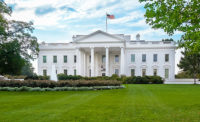Leaders need time to reflect, but who has the time or inclination?

“We need to begin by talking about what leadership really means,” said Deresiewicz. “I just spent 10 years teaching at another institution that, like West Point, liked to talk a lot about leadership, Yale University. These (top academic) institutions, like West Point, also see their role as the training of leaders, constantly encourage their students, like West Point, to regard themselves as leaders among their peers and future leaders of society. Indeed, when we look around at the American elite, the people in charge of government, business, academia, and all our other major institutions—senators, judges, CEOs, college presidents, and so forth—we find that they come overwhelmingly either from the Ivy League and its peer institutions or from the service academies, especially West Point.
“See, things have changed since I went to college in the ’80s. Everything has gotten much more intense. You have to do much more now to get into a top school like Yale or West Point, and you have to start a lot earlier.
“So what I saw around me were great kids who had been trained to be world-class hoop jumpers. Any goal you set them, they could achieve. Any test you gave them, they could pass with flying colors. They were, as one of them put it herself, ‘excellent sheep.’
“That is exactly what places like Yale mean when they talk about training leaders. Educating people who make a big name for themselves in the world, people with impressive titles, people the university can brag about. People who make it to the top. People who can climb the greasy pole of whatever hierarchy they decide to attach themselves to.
“You can decide to be a different kind of leader. What we don’t have, in other words, are thinkers. People who can think for themselves. People who can formulate a new direction: for the country, for a corporation or a college, for the Army—a new way of doing things, a new way of looking at things. People, in other words, with vision.”
Don’t think, just do it
What Mr. Deresiewicz is prescribing is almost un-American. We are a nation of “can doers.” Our emphasis, our history, is all about leading the charge. Think Teddy Roosevelt. George Patton. Lincoln embraced U.S. Grant because he didn’t’ suffer from the “slows.” Think of your favorite NFL quarterback. Or John Wayne. How many scenes do we see The Duke in reflection, self-introspection? That’s for philosophers and poets, not our dynamic, charismatic leaders. Critics of President Obama say he has a serious case of the slows — he’s too timid and cautious to lead the free world, they argue.
When I was in eighth grade our gym teacher was a decorated Vietnam Marine who had lost one eye and half his left arm in combat. At one point he had been administered the Last Rites. He came to us fresh from recovery and rehab. One morning he was teaching us a new type of kickball game, with new rules. My turn came to kick the ball and after booting it, I froze. I didn’t understand the rules and what I was supposed to do. “Don’t think,” barked the former Marine. “Act.”
Sorting out the mental “strands”
When leaders of any sort, including safety leaders, are under pressure — which they often are — the default position is to take action, be decisive. Be quick. You don’t have time to dawdle and cogitate on whether to do this or that.
This is natural and instinctive and a survival reaction in the heat of the crisis. But leaders are not constantly in the crisis mode. Moments of extreme stress are interspersed with lengthy periods of “lulls in the action.” This is where the opportunity to do some thinking, reflecting, Big Picture conjuring exists.
But it’s something of human nature that many of us do not like to be alone with our thoughts. Our thoughts can take us places we’d rather not visit. They are hard to control and direct. They can dreg up buried feelings of doubt, conflicted thinking and wavering confidence.
Or, as The Dude said in the movie, The Big Lebowski: “This is a very complicated case. You know, a lotta ins, a lotta outs, a lotta what-have-yous. And, uh, a lotta strands to keep in my head, man. Lotta strands in old Dude’s head.”
A little solitude
Leaders who think about the Big Picture, about the long-term, who form visions of where they want to take their companies and their people — what visions and values they want to build on and accomplish — aren’t afraid of a little solitude. They don’t view introspection and analysis as “warm and fuzzy” fodder for wusses. They have ambitions and goals and things they want to accomplish, and “thinking” is what formulates their plans and strategies.
There’s nothing wrong with being a thinker. A procrastinator is something else again. Someone who can’t reach a conclusion or a conviction and who can’t make up their mind is something else again. These obviously are not traits of leaders. But leaders who want to be more than liked by everyone, more than be willing to go along to get along, tend to think things out. Consider Lincoln. Gandhi. Martin Luther King. Mandela. The Founding Fathers. The Dude.
When it comes to leadership, there’s nothing wrong with closing your door and carving out some solitude time. One caveat: be nimble, open and flexible in your thinking. Plans and strategies change with circumstances. The famous British theatre and film director Peter Brook said one must commit themselves totally, passionately, to their point of view, but don’t take it too seriously — “hold on tightly, let go lightly.”
Looking for a reprint of this article?
From high-res PDFs to custom plaques, order your copy today!







